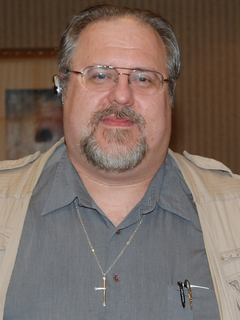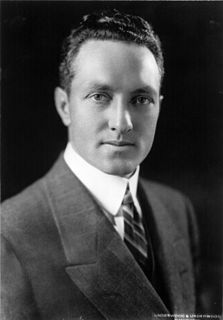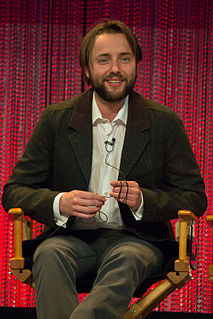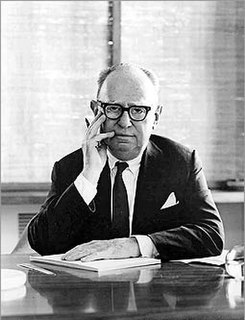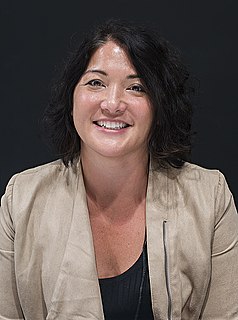A Quote by David Weber
I suppose I ought to think up some dramatic, quotable phrase for Public Information and the history books, but I'm damned if any of them come to mind. Besides, admitting the truth wouldn't sound too good. The truth, Russell, is that now the moment's here, I'm scared shitless. Somehow I don't think even Public Information could turn that into good copy.
Related Quotes
Well, there's a question as to what sort of information is important in the world, what sort of information can achieve reform. And there's a lot of information. So information that organizations are spending economic effort into concealing, that's a really good signal that when the information gets out, there's a hope of it doing some good...
Well, there's a question as to what sort of information is important in the world, what sort of information can achieve reform. And there's a lot of information. So information that organizations are spending economic effort into concealing, that's a really good signal that when the information gets out, there's a hope of it doing some good.
I'm very good at breaking up with people. Very good. It requires a lot of skill, but what you do is you tell them the truth of why you are breaking up with them, and after that, you somehow compensate with other things. If you have loved someone, I think that somehow they should always be a part of your life. I really do.
What people think about you is not supposed to matter much, so long as you yourself know where the truth lies; but I have found out, as have others who move in and out of newspaper headlines, that on occasion it can matter a good deal. For once you enter the world of headlines you learn there is not one truth but two: the one which you know from the facts; and the one which the public, or at any rate a highly imaginative part of the public, acquires by osmosis.
What has happened is that genetics has become a branch of information technology. It is pure information. It's digital information. It's precisely the kind of information that can be translated digit for digit, byte for byte, into any other kind of information and then translated back again. This is a major revolution. I suppose it's probably "the" major revolution in the whole history of our understanding of ourselves. It's something would have boggled the mind of Darwin, and Darwin would have loved it, I'm absolutely sure.
I'm quite good at taking in information so I voraciously inhale Wikipedia - which may have some things wrong in it, but I think is generally more information than we had before. Last tour we didn't have Wikipedia. And then Discovery Channel and History Channel. I can take it in and retain what I think are the most important facts.
One can think of a secretary actively operating a filing system, of a librarian actively cataloguing books, of a computer actively sorting out information. The mind however does not actively sort out information. The information sorts itself out and organises itself into patterns. The mind is passive. The mind only provides an opportunity for the information to behave in this way. The mind provides a special environment in which information can become self-organising. This special environment is a memory surface with special characteristics.
The trade of advertising is now so near to perfection that it is not easy to propose any improvement. But as every art ought to be exercized in due subordination to the public good, I cannot but propose it as a moral question to these masters of the public ear, whether they do not sometimes play too wantonly with our passions.
The truth is, that, even with the most secure tenure of office, during good behavior, the danger is not, that the judges will be too firm in resisting public opinion, and in defence of private rights or public liberties; but, that they will be ready to yield themselves to the passions, and politics, and prejudices of the day.
I been silent so long now it’s gonna roar out of me like floodwaters and you think the guy telling this is ranting and raving my God; you think this is too horrible to have really happened, this is too awful to be the truth! But, please. It’s still hard for me to have a clear mind thinking on it. But it’s the truth even if it didn’t happen.
I was downright obnoxious. In second grade, we had some program where we kept a public list of all the books we read. I think it even included the number of pages. In my nerdy mind, having the longest and most impressive list was somehow going to make up for the fact that I couldn't climb a rope or do a backwards summersault in PE.
I don't think we should have less information in the world. The information age has yielded great advances in medicine, agriculture, transportation and many other fields. But the problem is twofold. One, we are assaulted with more information than any one of us can handle. Two, beyond the overload, too much information often leads to bad decisions.
An acoustic ecologist is a listener who is aware that sound is information. It's information because it's created by events, events produce sound, and that sound has all kinds of data, if you will, that conveys what event occurred, what the materials were, whether it was sudden, slow, loud, in what direction. And because it is information, we can think of it as a message. The acoustic ecologist studies information systems that are both intentional and sometimes wild.
